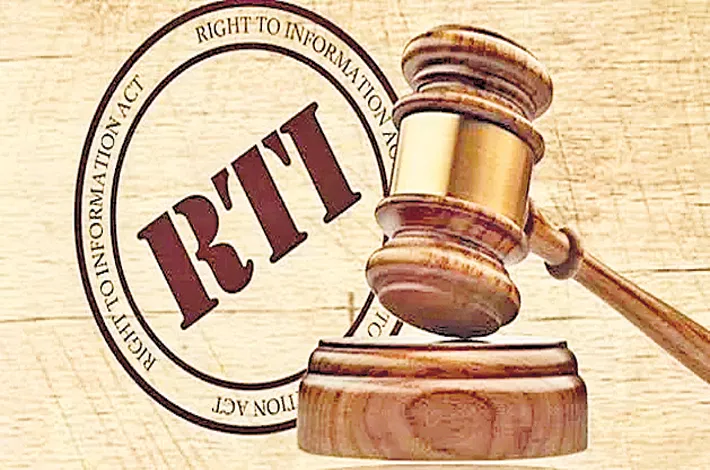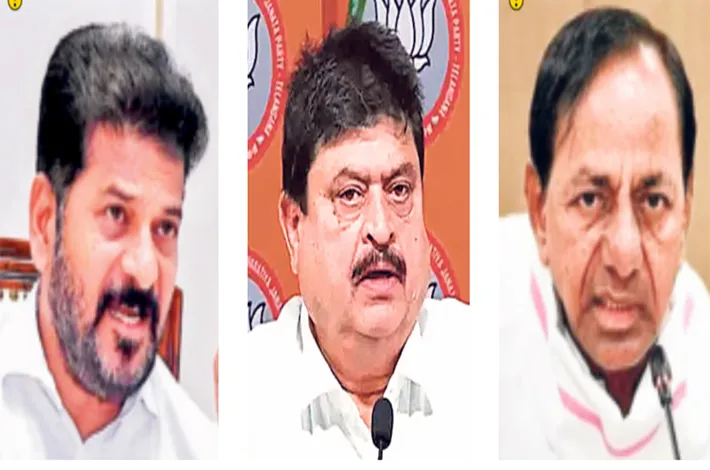Telangana RTI in Deep Sleep: Fines after 10-Year Coma!
31-10-2025 12:00:00 AM

metro india news I hyderabad
The Right to Information (RTI) Act, once a beacon of transparency, lies in tatters in Telangana. Applications pile up unanswered, annual reports gather dust, and the Commission's website remains a relic of 2014. But a rare spark: fines imposed on errant officers after years of inaction. RTI activists hail it as a wake-up call, yet question if the "people's government" will truly revive this vital law or let it rot further.
The RTI Act is comatose in the state—no responses to pleas, zero updates on the Commission's site. Despite a full bench of commissioners appointed after 11 years of dormancy, the engine of accountability sputters. Activists roar: This isn't oversight; it's outright sabotage. The government dodges public scrutiny, burying info that belongs in the open. Only the dusty 2014 annual report haunts the website, a ghostly reminder of better days.
Fines after a Decade: A Glimmer of Justice?
For the first time in ten years, the RTI Commission strikes back. Commissioner PV Srinivasa Rao slapped Rs. 5,000 and Rs. 2,000 fines on two officers for stonewalling information in recent appeals. RTI warriors and NGOs erupt in cheers—finally, a crack in the wall of neglect. No penalties since 2014? That's not enforcement; that's extinction. This move reignites hope, but is it a flash or a fire?
From united Andhra in 2014 to Telangana's birth, the RTI Commission documented its deeds online. Then? Radio silence. No annual reports, no stats on appeals received, resolved, or pending. Mandated to table reports in the Assembly yearly? Forgotten files, zero visibility. Post-state formation, the government installed commissioners and called it a day. Result: A slumbering giant, with performance metrics as invisible as ghosts. Activists slam: If no reports for a decade, what’s this if not criminal negligence?
Echoes of the past regime: Will history repeat?
RTI champions blast the previous government's decade-long coma for the Commission. Now, under the "people's government," the same lethargy? Yet, these fines hint at dawn breaking. Speed up resolutions, hammer negligent officials with fines and actions—boom, confidence surges among citizens, NGOs, and activists. Officials still ignore basic info requests, shirk first appeals, forcing second ones. Over 500 unresolved cases? That's a backlog begging for blitzkrieg reform.
Only 40-50% of Government Orders (GOs) hit the public domain; the rest? Shrouded in secrecy, a habit inherited from the old regime. Activists thunder: Unacceptable in a democracy! Born under Congress at the Center, the RTI Act demands strict enforcement—hold officials accountable, flood the public with info. Result? Government earns goodwill, trust skyrockets. Hiding GOs? That's not governance; that's gatekeeping.
Time to act boldly: Activists demand Revival
"Ten years of RTI Commission paralysis—thousands of appeals rotting," blasts Sunkari Prashanth, RTI activist and Loksatta Movement's Warangal Joint District President. "Hearing of fines after a decade? Thrilling! But Rs. 2,000-5,000? Peanuts—won't jolt officials. Order departmental probes; that's the knockout punch. Restore pre-2014 vigor: Deliver justice, transparency, and info to the masses. Only then will the RTI Act's spirit triumph." In Telangana, the RTI Act teeters on revival or ruin. Will the government unleash its power, or let shadows prevail? The clock ticks—transparency can't wait.








